Category: Caregiving Tips
Articles for caregivers of terminally ill patients including how to manage challenging situations.
Articles for caregivers of terminally ill patients including how to manage challenging situations.

The BEERS Criteria is vital for improving medication safety in older adults. This article explores the importance of regularly reviewing these guidelines, discussing the frequency of reviews, the potential risks of inappropriate medications, and how healthcare providers can implement effective medication management strategies for geriatric patients.

Ambiguous loss is a type of grief that happens when loss feels unclear or unfinished. Unlike traditional grief, this emotional pain lacks closure, making it harder to process. Learn to recognize the signs of ambiguous loss and discover practical healing strategies to help you move forward with hope.

Conflict happens in every relationship and setting. This practical guide teaches a proven 7-step approach developed by conflict resolution experts to recognize, prevent, and resolve disagreements compassionately. Learn essential de-escalation tools for better communication and stronger relationships.
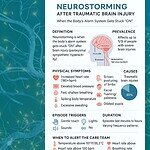
Neurostorming is a complex condition that occurs after severe brain injury, causing episodes of elevated heart rate, blood pressure, fever, and muscle rigidity. This comprehensive guide helps caregivers, family members, and healthcare professionals understand prevention strategies, early detection methods, home management techniques, and advocacy approaches to reduce hospitalizations while providing compassionate care.

When a family can't accept that their loved one is dying, it creates additional stress during an already challenging time. This article offers guidance on communicating with denial, supporting the patient, managing family dynamics, and finding professional help. Learn practical strategies to navigate this sensitive situation with compassion and understanding.

Caring for a terminally ill loved one at home is an incredibly challenging and emotional journey for family caregivers. This guide acknowledges the struggles you may face and offers compassionate solutions. It explores valuable resources, such as end-of-life doulas, PACE programs, and professional home care services, all designed to help ease your burden and provide support during this difficult time. You are not alone in this experience; there are ways to find relief and comfort as you navigate these profound challenges.

Legacy projects offer powerful pathways to closure for both patients facing end-of-life and their families. From memory quilts to ethical wills, these meaningful activities transform difficult goodbyes into lasting connections, reduce anxiety, and provide comfort during grief while preserving precious memories.
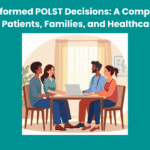
This comprehensive guide helps patients, families, and healthcare professionals confidently navigate POLST decisions. Learn the essential steps, understand your options, and ensure your end-of-life care wishes are honored through proper planning and communication.
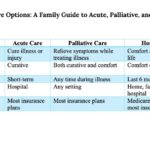
Discover when and how acute, palliative, and hospice care can help patients and families navigate serious illness. This comprehensive guide explains the differences between care types, eligibility requirements, and how to choose the correct option.
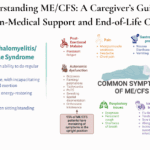
This comprehensive guide helps caregivers, families, and end-of-life professionals understand ME/CFS, providing practical tools for non-medical support. Learn about the disease trajectory from onset to end-of-life care, including when palliative and hospice care should be considered for optimal patient comfort and well-being.
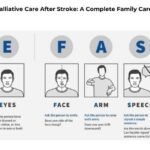
Discover how palliative care can transform the stroke recovery journey for patients and their families. This comprehensive guide explains the benefits, services available, and steps to access palliative care support throughout the United States.
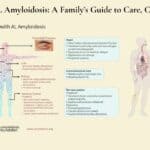
AL amyloidosis is an uncommon yet severe condition that impacts various organs. This detailed guide provides essential information for patients and their families regarding symptoms, disease progression, treatment options, and the timing of considering hospice care for their loved one.

Discover how hospitals are crucial in helping families place dementia patients in appropriate care settings. This article explores various care options, discusses challenges in placement decisions, and provides evidence-based strategies for effective hospital-based care coordination to ensure the best possible outcomes for patients and their loved ones.

Discover the theory of retrogenesis and its profound impact on dementia care. This comprehensive guide helps nurses, caregivers, and families understand how dementia reverses developmental stages, offering practical insights for tailored care strategies. Learn to navigate the challenges of dementia with empathy and effectiveness.
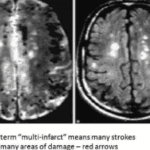
Multi-infarct dementia is a challenging condition that affects not only patients but also their families and caregivers. This comprehensive guide explores the disease's progression, common symptoms, and effective care strategies. Learn what to expect and how to provide the best support for your loved one from diagnosis through end-of-life care.

Dementia is a challenging journey for both patients and caregivers. This comprehensive guide explores the stages of dementia progression and offers practical advice on care strategies, treatment options, and support resources. Learn how to navigate the changes and provide compassionate care throughout the journey.
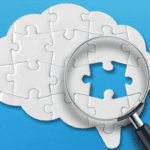
This article delves into Utilization Behavior in dementia, offering practical advice for families and caregivers to create a safe environment and mitigate the challenges associated with this condition.
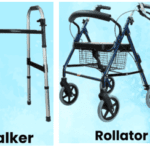
Discover practical and compassionate strategies for encouraging a loved one with dementia to use a cane, walker, or wheelchair. Enhance their safety and quality of life with these tips.
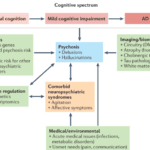
This guide provides hospice nurses, caregivers, and family members with essential information on dementia-induced psychosis, including its signs, symptoms, differentiation from other conditions, and effective management strategies.

This article provides practical tips and strategies for caregivers and family members to prevent dementia patients from removing their oxygen nasal cannula. Ensuring continuous oxygen use is essential for their health and well-being.
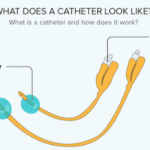
Discover how to provide expert care for a loved one with a Foley catheter. This comprehensive guide, written by a hospice nurse, covers essential steps, common problems, and medication tips. Learn to change tubing, prevent clogging, and ensure comfort during end-of-life care. Empower yourself with the knowledge to support your loved one effectively.
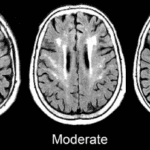
Caring for someone with Chronic Small Vessel Disease (CSVD) can be challenging, but with the proper knowledge and strategies, you can make a significant difference. This guide offers practical advice on creating a supportive environment, managing symptoms, and improving the quality of life for your loved one with CSVD.

Discover the essentials of hiring caregivers for terminally ill patients. This guide covers caregiver qualifications, assessing understanding of terminal care, and practical hiring tips.

This comprehensive guide explores blood work for common terminal diseases. Learn which lab tests are necessary for different conditions and how they assist in managing disease progression and treatment. Ideal for caregivers, nurses, and family members.